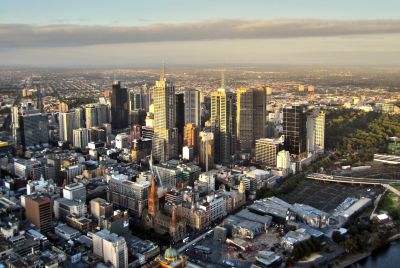First Home Buyers Not Interested in the 30 Year Debt Trap
What's this? First home buyers are not interested in taking out a loan to buy an overvalued property? The Australian Bureau of Statistics released data yesterday showing that loan approvals fell 1.5% in December, to the lowest level in three months.
The Australian Financial Review reports that first home buyers accounted for just 14.9% of all loans taken out in December, well below the long run average of 20.1%.
Yet official interest rates are 3%. It's not an emergency rate, of course, so the last time rates were this low - in a non-emergency setting - was in the early 1960s. With money being so cheap, we can't understand why today's little tackers aren't rushing headlong into the housing market. After all, it's a sure thing...property always goes up.
Source: Australian Bankers Association
This is all the more confusing because when reading the Weekend Financial Review a few days ago, property preacher Christopher Joye said, 'Housing affordability is now at its best level in a decade, so there is every chance capital growth will accelerate this year.'
Mr Joye also had a nice chart showing how average capital city prices have increased 6% since the 2012 low. The inference was that house prices are set to head higher again, so get on board.
Well, we're not sure that first home buyers are listening to Mr Joye or the other experts singing the praises of the property market. Which is strange, because Mr Joye really knows what he's talking about. He has an interest in RP Data-Rismark, a property data compilation firm, and sits on the board of Yellow Brick Road, a start-up mortgage provider.
Perhaps it's just a case of young adults with young families not having the means to, or not wanting to, walk into a debt trap for the next 30 years. Too many experts live in a bubble world themselves, judging affordability by looking at statistics rather than human nature.
For what it's worth, we think residential property is going through a classic 'dead cat bounce'. It happens when all bull markets turn into bears. Aussie property peaked in 2010. It began falling in 2011 and the first half of 2012. It has since had a knee-jerk revival on lower interest rates and misplaced optimism on China.
But as recent data has shown, it's not bringing new buyers into the market. It's just extending the Ponzi scheme going on amongst those already in the thick of it.
Greg Canavan
for The Daily Reckoning Australia





















